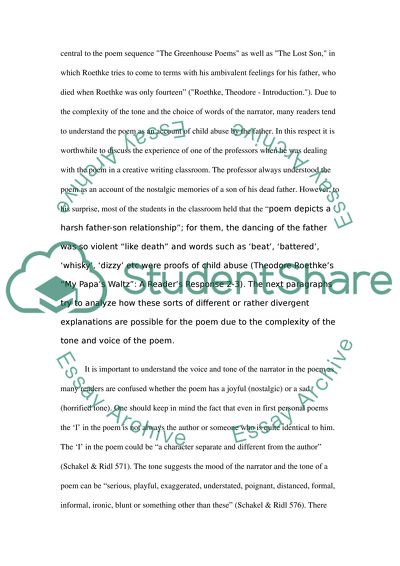Cite this document
(“Literary Analysis of Theodore Roethke's Poems with Special Reference Essay”, n.d.)
Literary Analysis of Theodore Roethke's Poems with Special Reference Essay. Retrieved from https://studentshare.org/literature/1556793-final-assignment-in-english-ii
Literary Analysis of Theodore Roethke's Poems with Special Reference Essay. Retrieved from https://studentshare.org/literature/1556793-final-assignment-in-english-ii
(Literary Analysis of Theodore Roethke'S Poems With Special Reference Essay)
Literary Analysis of Theodore Roethke'S Poems With Special Reference Essay. https://studentshare.org/literature/1556793-final-assignment-in-english-ii.
Literary Analysis of Theodore Roethke'S Poems With Special Reference Essay. https://studentshare.org/literature/1556793-final-assignment-in-english-ii.
“Literary Analysis of Theodore Roethke'S Poems With Special Reference Essay”, n.d. https://studentshare.org/literature/1556793-final-assignment-in-english-ii.


